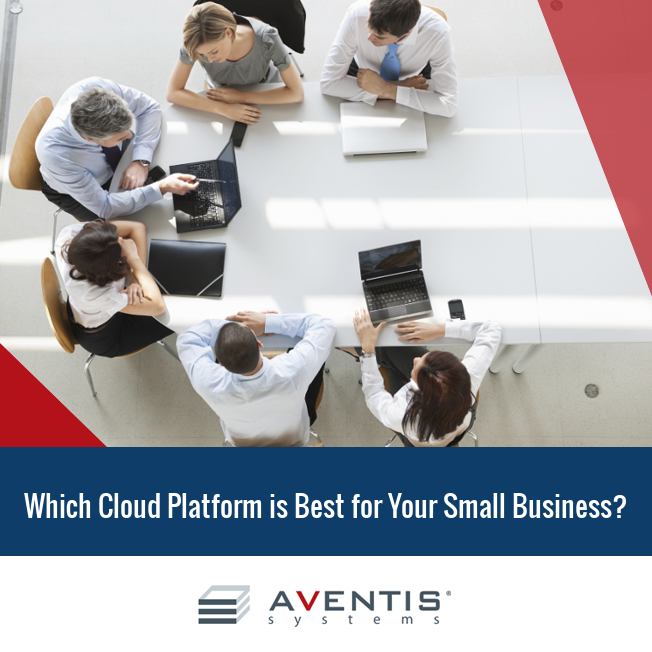|
|
|
Which Cloud Platform is Best for Your Small Business? Last Updated: 07/20/2018 |
Which Cloud Platform is Best for Your Small Business?Cloud computing provides the opportunity for organizations to become more efficient than ever. With cloud computing, businesses receive economic advantages, innovation, agility, speed,and flexibility. According to Spiceworks, the cloud is here to stay. A large majority of small and mid-sized businesses are already embarking on a cloud journey, making information technology an essential component of a business’ ability to continue to grow and increase profits. 
The first part of our cloud computing series took you through the steps to transition to the cloud. Now let’s discuss which cloud solution is right for your business. Which Platform is Best for Your Company?Spiceworks reports that SMBs use the greatest number of cloud services and that the smaller the company, the more likely that they are using cloud computing. Sixty-eight percent of companies with less than 20 employees use cloud, compared to 50 percent of companies with 250-499 employees that deploy cloud computing. Of these companies, 43 percent believe public cloud serves their business needs, with the remaining 57 percent split between private and hybrid solutions. Which platform does your company need -- public, private or hybrid cloud? We explore each cloud platform below to help you decide. Types of cloud platforms 1. Private cloud A private cloud is a model of cloud computing offering a secure environment to a limited number of individuals with localized firewall protection.
Benefits
Disadvantages 2. Public cloud Public cloud provides you with your own off-site cloud within a shared infrastructure. A provider secures, maintains, and offers system resources, making public cloud less expensive for the business owner.
Benefits
Disadvantages 3. Hybrid cloud Hybrid cloud employs a combination of public and private clouds depending on application and server roles. An organization has its own IT team manage part of the cloud off-site and part of the cloud in-house. Hybrid cloud is perfect for a business that wants to securely manage its confidential business data in-house, but would like to store other less-sensitive information elsewhere. In most cases, the hybrid cloud platform works well for any type of business.
Benefits
Disadvantage Selecting a Cloud ProviderOnce you decide which platform is right for your business, you must select a cloud provider. It is important for you to ask the right questions to determine which provider can deliver what you need. These questions include:
You should only consider providers that offer cloud solutions designed for business-class technology. These cloud environments will have a high-level of security and flexibility to serve all of your business functions. When choosing a provider, it is crucial to have a very clear service agreement. This agreement should define the resolution and response timeframes, the structure of the customer support, and security measures. Security is the most important thing to discuss with your potential cloud provider. Make sure that all security procedures meet industry standards and focus on next steps if something goes wrong. Allow Us To Transition Your Company To The CloudAventis Systems partners with thousands of SMBs, supporting the software, hardware and virtual environments that run their applications. Our experience and technical expertise allows us to help our customers make the best decision for their companies. The combination of the infrastructure, software, and services choices available through Aventis Systems give businesses a comprehensive private and public cloud computing strategy. Aventis Systems’ services include:
Contact us with any of your questions today! Subscribe to Our ContentStay updated with Aventis Systems' latest blogs, infographics and eBooks to get the IT industry's best content! |









